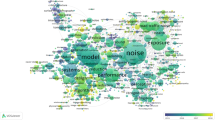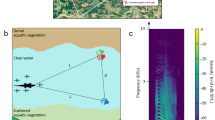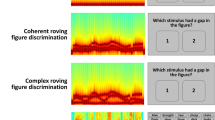Abstract
AN extensive inquiry among traders, policemen, missionaries and Eskimos concerning the audibility of the aurora was made by members of the Canadian Polar party stationed near Chesterfield Inlet on the west coast of Hudson Bay. The majority of the white people who were questioned had more than twenty year's experience in the eastern Canadian arctic. The Eskimos were questioned only after we found that they were calling us “foolish white men”, because we had said that the aurora was inaudible. Natives living in the region extending from Repulse Bay in the north to Eskimo Point in the south, and from Baker Lake in the west to Southampton Island in the east were included in the inquiry.
This is a preview of subscription content, access via your institution
Access options
Subscribe to this journal
Receive 51 print issues and online access
$199.00 per year
only $3.90 per issue
Buy this article
- Purchase on Springer Link
- Instant access to full article PDF
Prices may be subject to local taxes which are calculated during checkout
Similar content being viewed by others
Author information
Authors and Affiliations
Rights and permissions
About this article
Cite this article
DAVIES, F., CURRIE, B. Audibility of the Aurora and Low Aurora. Nature 132, 855–856 (1933). https://doi.org/10.1038/132855b0
Issue Date:
DOI: https://doi.org/10.1038/132855b0
This article is cited by
-
Sunspot Number and the Refractivity of the Air
Nature (1934)
Comments
By submitting a comment you agree to abide by our Terms and Community Guidelines. If you find something abusive or that does not comply with our terms or guidelines please flag it as inappropriate.



